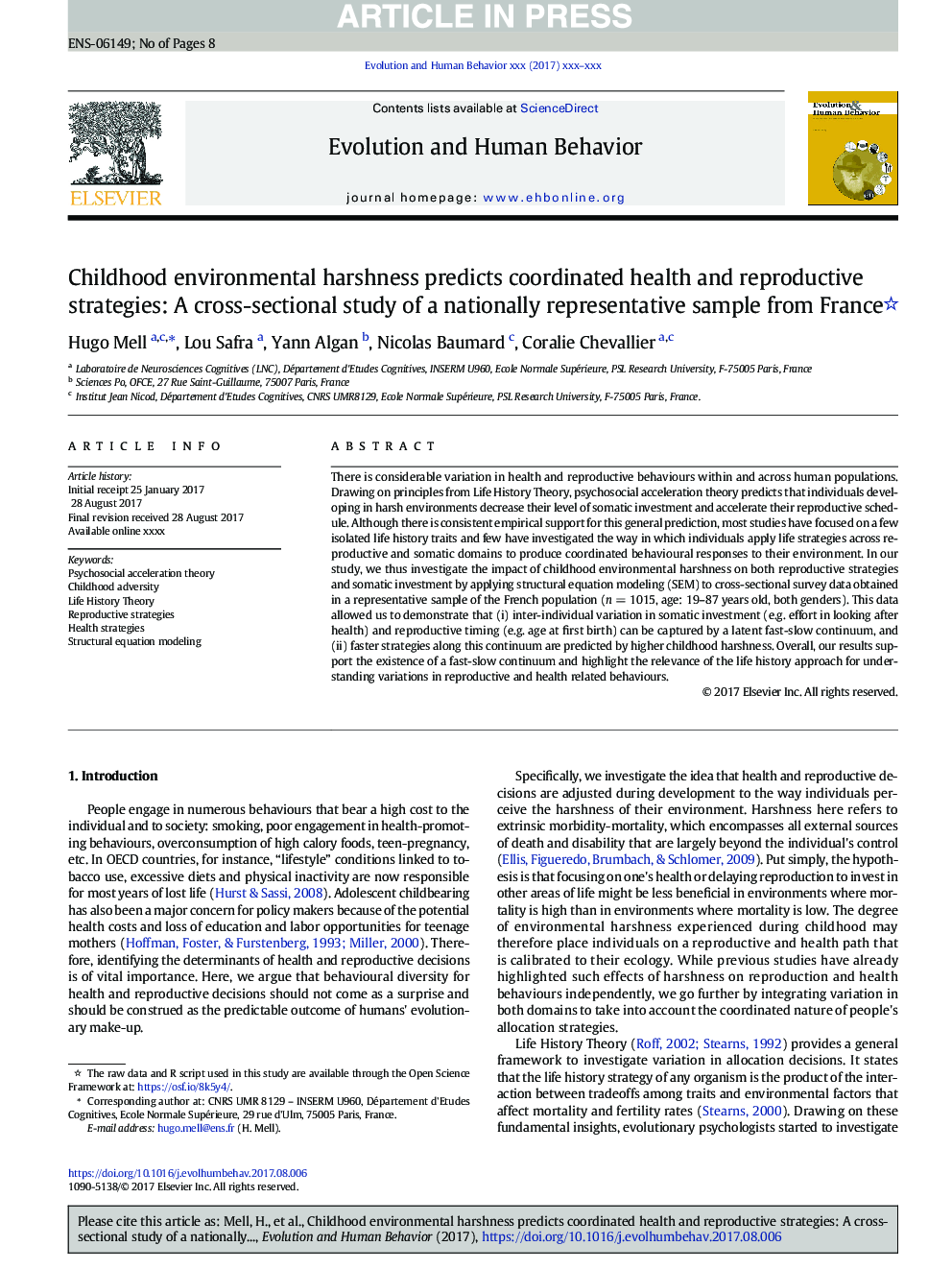| Article ID | Journal | Published Year | Pages | File Type |
|---|---|---|---|---|
| 7316332 | Evolution and Human Behavior | 2018 | 8 Pages |
Abstract
There is considerable variation in health and reproductive behaviours within and across human populations. Drawing on principles from Life History Theory, psychosocial acceleration theory predicts that individuals developing in harsh environments decrease their level of somatic investment and accelerate their reproductive schedule. Although there is consistent empirical support for this general prediction, most studies have focused on a few isolated life history traits and few have investigated the way in which individuals apply life strategies across reproductive and somatic domains to produce coordinated behavioural responses to their environment. In our study, we thus investigate the impact of childhood environmental harshness on both reproductive strategies and somatic investment by applying structural equation modeling (SEM) to cross-sectional survey data obtained in a representative sample of the French population (n = 1015, age: 19-87 years old, both genders). This data allowed us to demonstrate that (i) inter-individual variation in somatic investment (e.g. effort in looking after health) and reproductive timing (e.g. age at first birth) can be captured by a latent fast-slow continuum, and (ii) faster strategies along this continuum are predicted by higher childhood harshness. Overall, our results support the existence of a fast-slow continuum and highlight the relevance of the life history approach for understanding variations in reproductive and health related behaviours.
Related Topics
Life Sciences
Agricultural and Biological Sciences
Ecology, Evolution, Behavior and Systematics
Authors
Hugo Mell, Lou Safra, Yann Algan, Nicolas Baumard, Coralie Chevallier,
